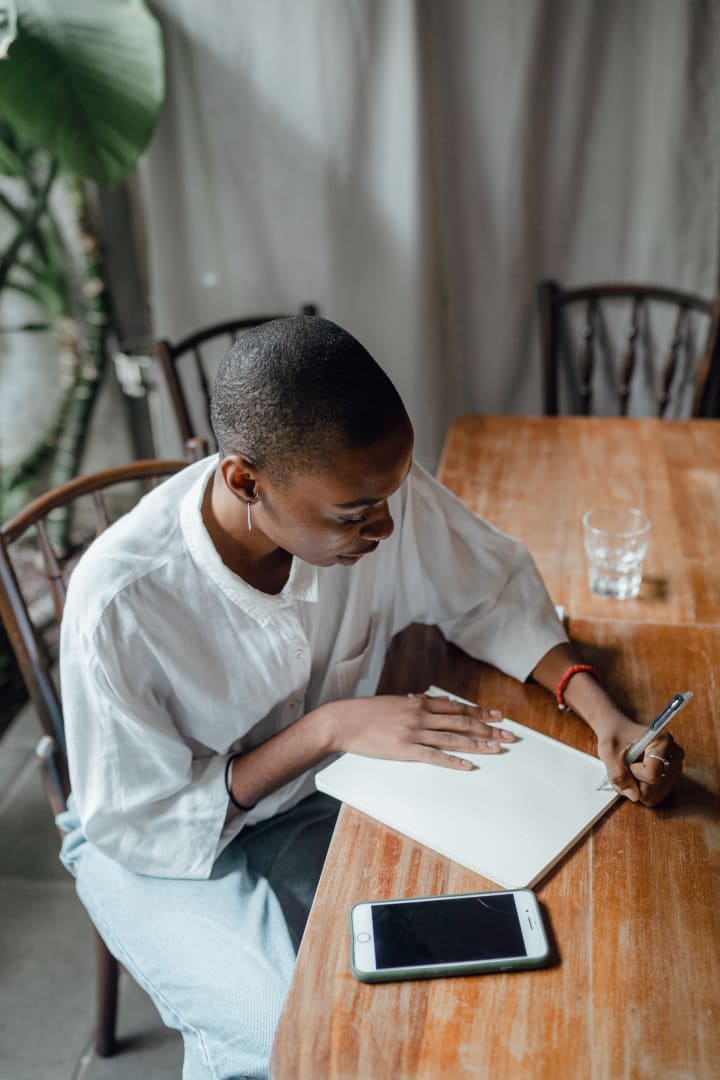5 Steps to Improving Your Communication Skills
Master the Art of Effective Communication

If you want to level up your personal and professional life, mastering effective communication is a must-have in your toolbox. Whether you're speaking with your boss, colleagues, clients, friends, or family, being able to understand others and express your thoughts clearly makes your interactions more meaningful and productive.
However, many people struggle with this. The good news is that communication is a skill that can be learned and refined with practice, even if you are an introvert or a shy person. So, let’s look at five practical steps you can take to enhance your communication skills and become a confident and effective communicator.
1. Understand the Person

It's essential to consider who you are communicating with when it comes to improving your communication skills. If you want to keep your job, you wouldn’t want to address your boss or manager the same way you address your close friends. So, depending on who you are speaking to, take note of the following:
- Avoid technical terms or jargon. Use language that your conversation partner understands so it’s easy for them to follow along.
- Emphasize what's important to the other person. For example, if you're speaking with a potential client, emphasize how your product or service can solve their problem. This shows them that you understand and care about their needs.
- Adapt your communication style. If you're speaking with a friend, you’ll use a conversational tone and some slang. On the flip side, if you're speaking with a professional at a networking event, you would want to use more formal language and avoid slang.
In summary, know your audience so you can tailor how you communicate with them.
2. Practice active listening

Active listening means giving your full attention to the person speaking, understanding their message or point of view, and responding when it’s appropriate for you to do so. Here are some ways you can practice active listening:
- Focus on the speaker. Active listening requires you to be fully present in the conversation. So try to eliminate distractions, such as your phone, and make eye contact to give your undivided attention.
- Avoid interrupting. Conversations are a two-way exchange. Give the other person the space to express their thoughts without interrupting them. If you need clarification, wait for an appropriate time to ask questions (easier said than done right?).
- Respond appropriately.When your partner is done talking, you can come in and ask questions or share your own perspective. Ensure this is relevant to their message and shows that you were engaged and actually listening.
According to Dale Carnegie, author of How to win friends and influence people:
“You can make more friends in two months by becoming interested in other people than you can in two years by trying to get other people interested in you.”
3. Be mindful of your body language

Body language can communicate a lot more than words alone. In fact, some experts say that at least 70% of communication is non-verbal, so it’s important to keep this in mind if you want to enhance your communication skills. Here are some pointers to get started.
- Pay attention to your posture. Sitting or standing upright makes you appear confident and engaged. On the other hand, a slouching posture makes you seem unconfident or uninterested.
- Use hand gestures meaningfully. Hand gestures can enhance your message, but overusing them or using them inappropriately can be distracting. Use them where necessary to emphasize key points or to show enthusiasm.
- Be mindful of your facial expressions. Your facial expression conveys to the other person what you are thinking or how you are feeling. If you want to exude positivity, friendliness, and approachability, smile often. Also, nod every now and then to show you are engaged and to encourage the other person to keep talking.
4. Take notes

Taking notes is an effective way to improve your communication skills, especially in formal settings. It helps you stay focused and respond more thoughtfully during conversations. It also shows the other person that you are interested and engaged.
While this is important, you don’t want to overdo it so that you are mostly writing or poring over your notes during the conversation. Here are some tips to avoid that and quickly capture key points.
- Use shorthand. Consider shortening certain words with abbreviations, symbols, and acronyms.
- Jot down keywords. Instead of writing complete sentences and phrases, only note keywords or key takeaways that are important and will need to recall in the future.
- Use mind maps. Mind mapping is a technique used to visually organize information. You can use it to connect related ideas and concepts in your notes. This is helpful for identifying the main points of any discussion and how they relate to each other.
5. Seek feedback

Improving your communication skills is an ongoing process, and one of the best ways to get better is to gather feedback to continuously hone your skills. Here are a few ways to get started:
- Be your own critic. Record yourself speaking or presenting and watch the footage to identify areas for improvement.
- Reach out to people. Identify people who you trust that can provide constructive feedback. This could be a friend, family member, colleague, or mentor.
- Ask specific questions when taking feedback. For example, you might ask, "Did my explanation of topic XYZ make sense and was it easy to follow?" This makes it easier for others to give you valuable and actionable feedback.
-Reflect and make changes. After receiving feedback, take the time to reflect on it and consider how you can use it to improve your communication skills. As you make these changes, evaluate your progress and continue to seek feedback to track your progress.
Conclusion
Mastering effective communication is a process that takes time and effort, but it is a valuable investment that will pay off in many areas of your life. By following the five steps outlined in this article, you’ll become a better communicator and build stronger relationships personally and professionally.
About the Creator
A Avondale
Mindset & Motivation Tips and Techniques.






Comments
There are no comments for this story
Be the first to respond and start the conversation.